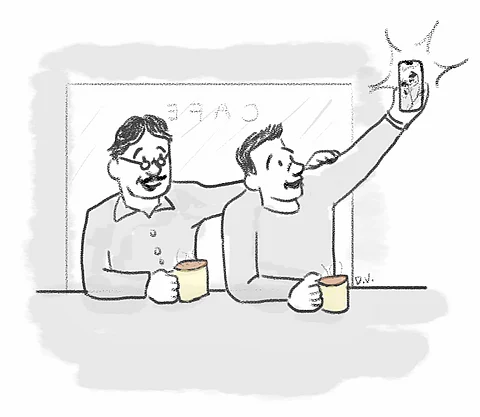
- NEWS
- the EDIT
- COMMENTARY
- BUSINESS
- LIFE
- SHOW
- ACTION
- GLOBAL GOALS
- SNAPS
- DYARYO TIRADA
- MORE

We prepare for firsts.
We celebrate them — first jobs, first birthdays, first love. There are photographs to remember them by, journal entries to relive the excitement. But the lasts? We rarely know when they happen. They arrive without fanfare. And when we finally recognize them, they’ve already passed.
This is the quiet weight behind what people call The Theory of Last Meeting: the idea that every encounter could be the last, and we almost never know which ones are.
The Mind Journal describes this theory as “once two people have exchanged the lessons they were meant to teach each other, fate intervenes — ensuring their paths never cross again. It doesn’t matter if you live in the same city, share the same circle of friends, or even frequent the same coffee shop. You simply won’t see them. No accidental run-ins. No surprise encounters. It’s as if the universe rearranges the pieces of your world, quietly shifting timelines and closing doors without you even realizing it.”
Most of us have experienced this theory firsthand.
Early in my career, I once had coffee with a mentor — someone who had quietly shaped how I think, how I lead, how I navigate this world. It was 2019. We talked for over an hour. Laughed. Shared frustrations about life and its messy unpredictability. When we stood up, we shook hands.
“Let’s catch up again soon,” we said.
But there was no next time. He passed away weeks later. That moment lives in my mind not as a goodbye, but as a reminder. We didn’t know it then, but that handshake, that conversation, that laughter, that was it.
This is what the theory asks of us: To consider, with humility, that every conversation might be our final one with someone. It’s not a call to fear or despair. It’s an invitation to live more attentively.
The Stoic philosopher Seneca wrote, from his essay “On the Shortness of Life,” “You act like mortals in all that you fear, and like immortals in all that you desire.” We delay love, kindness and sincerity as if we have infinite time. We withhold forgiveness thinking we can offer it later. We leave things unsaid assuming there will be a better moment.
But the truth is, we don’t own time. We only borrow it.
We say “see you tomorrow” as a habit, not a promise. And so much of life moves on autopilot: the quick goodbye, the distracted nod, the mindless scroll through a dinner conversation. Until one day, the autopilot ends, and we wonder if we could have stayed longer. Spoken softer. Said more.
Martin Heidegger, a German philosopher, introduced the concept “being-toward-death.” It sounds grim, but it is, in essence, a wake-up call. To be human is to be temporary. Everything we are — our loves, our routines, even our grievances — is framed by impermanence.
But we live as though we have forever.
The Theory of Last Meeting doesn’t ask us to dramatize every moment. It simply reminds us that nothing is guaranteed a repeat. And once we embrace that truth, the way we show up in life begins to shift.
We begin to listen more closely. We begin to give thanks with sincerity. We stop waiting for perfect occasions to say what we really mean. A simple “I’m proud of you” or “I’m glad you’re here” becomes not just a kindness, but a small act of courage. It’s not a burden but a responsibility. One that helps us choose our words with more grace and treat time with more reverence.
The same is true in families. In friendships. In leadership. The goodbyes we remember most vividly are rarely scheduled. They happen after routine dinners, after simple errands, in between days we thought were ordinary.
And so maybe the challenge is to stop living like everything is ordinary.
Because it’s not.
Each moment has the potential to be someone’s final memory of us—or ours of them. That is not a cause for fear, but a reminder to be present. To be kind. To be human.
I’ve seen people change — not from grand sermons, but from one sentence at the right moment. I’ve seen estranged friends reconnect with just one text. I’ve seen lives recalibrate with just one quiet realization: I didn’t know that was the last time.
If you knew today was your last meeting with someone, how would you speak to them? What would you say differently? Would you stay a little longer?
Maybe the point isn’t to obsess over endings. Maybe it’s to realize that every beginning contains its own farewell, waiting quietly at the edges. And the way we love, forgive and connect in the meantime — that’s what gives life its meaning.
We will always miss some last meetings. That’s the cost of living fully. But if we carry this theory with us — not as fear, but as guidance — we may find ourselves showing up with more heart, more clarity, and more presence.
Because in the end, maybe the most powerful gift we can give to one another is not permanence, but presence.
And had I known that coffee with my mentor was our last meeting, I wouldn’t have changed the conversation. But I might’ve held that handshake just a little longer.
